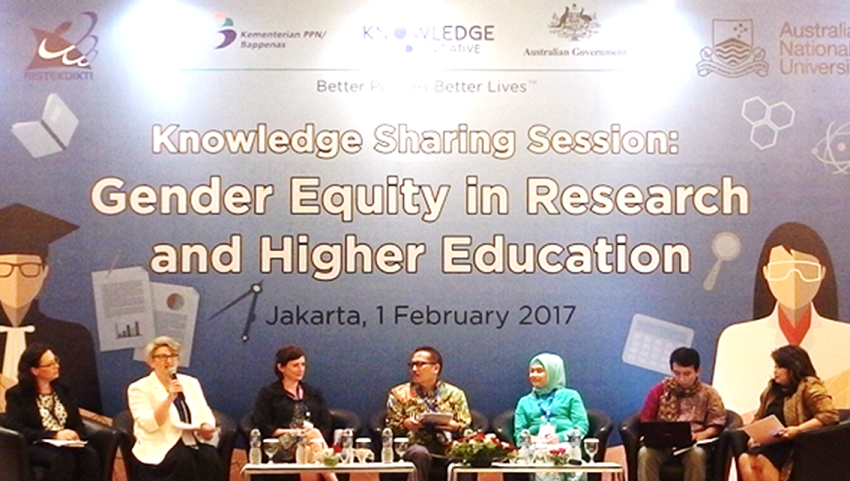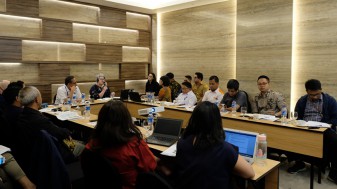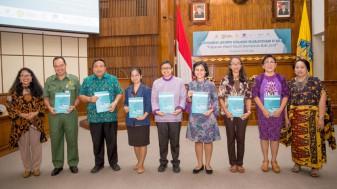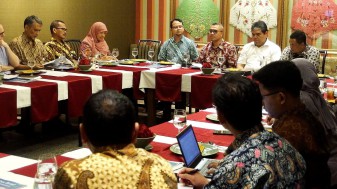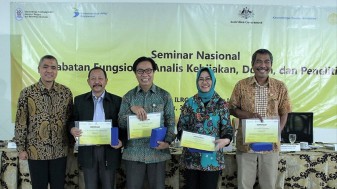by Siti Ruhanawati
In collaboration with the Australian National University (ANU) and Kemenristekdikti, KSI conducted two knowledge sharing sessions on Gender Equity in Research and Higher Education at the Hotel Luwansa, Jakarta, on 1 February 2017, and in UIN Sunan Kalijaga, Yogyakarta, on 3 February 2017. These events were covered positively by national media, including the Jakarta Post, Suara Pembaharuan, Tribunnews, jpnn.com and jawapos.com.
Professor Ocky Karna Radjasa, the Director of Research and Community Services, delivered the opening and knowledge sharing remarks in Jakarta, saying: “Hopefully there will be a productive discussion to obtain the good recommendation to support female scientists in Indonesia and to contribute to better gender equity in higher education and research”. He acknowledged that universities cannot reach their full potential unless they can benefit from the talents of all.
In the two knowledge sharing sessions, Professor Veronica Taylor, Professor Renee McKibbin and Dr. Nadine White from ANU presented Australian experiences on the implementation of gender equity in higher education through the Science in Australia Gender Equity (SAGE) program. Among other things, SAGE involves adopting the international Athena SWAN Charter introduced in response to a chronic under-representation of women in science leadership. Athena SWAN is an accreditation framework for gender equity issues adopted by 40 Australian universities, research institutes and government science organisations that involves a commitment to advancing women’s careers in higher education and research. Several Australian universities, including ANU, have also adopted the “Achievement Relative to Opportunity” policy, an career evaluative framework in which there is positive acknowledgement of what a staff member can or has achieved, given the opportunities available to him or her, recognising that women often have responsibilities for children, elderly parents or ill family members. This mechanism ensures publication and achievement is relative to opportunity, especially when a staff member takes a career break.
National speakers at the two seminars shared practices and lived experiences on gender equity implementation in Indonesian universities, as well as the importance of making sure that talented women are given equal opportunities in their career advancement. The progress findings of a scoping study on gender and social inclusion (GESI) in research and higher education were presented by the Sajogyo Institute. It found there is bias resulting from a serious lack of research on gender inequality and social exclusion issues in the Kemenristekdikti research grant 2013-2015. Less than 5 percent of the evaluated research grant used an explicit gender or social inclusion perspective.
As a follow-up to the two sessions, Kemenristekdikti, through the Directorate for Research and Community Service, has committed to increasing the number of research grants given to women, and to ensuring that more women are included in academic writing clinics. The introduction of GESI criteria for all of research grant schemes will be implemented next year. The Directorate will also host a roundtable discussion with the Ministry of Religious Affairs (for Islamic universities) and LAN/KemenPAN-RB (for civil service colleges) to encourage consistency in GESI implementation in higher education.

